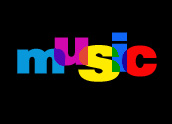
The explosion of digital audio technology has led to a relaxing of cultural and economic barriers worldwide, as detailed inPart 1 andPart 2 of this series.
Part 3 reviews the ways contemporary artists and distributors can use blogging, streaming, downloading and other nontraditional methods of marketing to get the word out about their creations.
Now, following on the phenomenal success ofApple’s iPod, there is a second wave of companies looking to ride the digital music and media convergence waves — assembling a mix of music artists, private label “indie” music producers, and the giants of the PC and consumer electronics industries.
It is too early to tell who will be left sailing to the horizon and who will be dashed on the rocks, but one thing seems certain: There is plenty of energy behind the digital music technology storm front.
You Gotta Fight for Your Rights
Digital rights management (DRM) is perhaps the most controversial, thorniest issue currently facing the music industry.
The debate has reached the halls of Congress, where in late May, theRecording Industry Association of America launched its latest legal assault on digital radio in Washington.
ThePerform Act of 2006 further hamstrings the ongoing growth and development of nascent digital satellite andInternet radio businesses in the name of protecting musicians’ and recording companies’ musical property rights and leveling the playing field for traditional radio broadcasters.
“I get angry as a consumer when I realize the limited uses to which I can put the music files I have purchased online,” Dave Douglas, jazz trumpeter, composer and founder of the artist-run Greenleaf Music label, told TechNewsWorld.
“I don’t believe the future lies in selling intentionally hobbled merchandise. We use no DRM at all,” he pointed out. “That said, as an artist and business owner, it breaks your heart when you see someone selling your stuff and not giving you anything. I’m flattered that the bootleggers are out there — it means people want the music. I also feel that in the area Greenleaf Music is in, it is a relatively minor problem.”
Leveraging the iPod
Addressing attendees at the WOMEX World Music Expo in Seville late last month,IODA (International Online Distribution Alliance) CEO Kevin Arnold proposed an International Music Discovery Initiative, which he and proponents believe can overcome commercial and cultural barriers to online niche market music distribution.
IODA plans to introduce its own version of a new “regional filtering” technology, which is based on readily available geographic information already gathered by digital music producers, on its Promonet Web site.
The International Music Discovery Initiative follows IODA’s work with iPod advertising marketplace and digital technology developerKiptronic. On Oct. 11, 2006, the two companies announced a partnership and the launch of the Kiptronic Podcast Marketplace, an online iPod service that automatically inserts local and regional advertising and promotional campaigns into popular podcasts.
“Through use of the Kiptronic Podcast Marketplace, IODA will be able to create geotargeted promotional campaigns for its artists. For example, a band currently touring various cities in the U.S. Midwest could use the Kiptronic Podcast Marketplace to deliver a promotional message about specific concert dates and locations, embedded in popular podcasts, to specific Midwest metro areas in advance of an upcoming concert,” the partners announced.
IODA’s clients include more than 2,700 independent music labels, and its content library includes more than 600,000 tracks.
“The music industry is in constant flux in the digital age. IODA addresses a fundamental problem facing independent record labels and artists — how to take advantage of new technologies, such as podcasting, in an open and flexible way that allows [artists] to retain control of their content and raise their profile with potential fans. Using Kiptronic, IODA will enable its clients to deliver targeted promotional messages to specific audiences that will be receptive,” said Kiptronic founder and CEO Jonathan Cobb.
Music Untethered
The iPod and the growing number of competinghandheld network access devices aren’t the only wireless music game in town, however. Companies such asmVisible Technologies are already providing wireless connectivity to a growing range of musical content via the convergence of cellular and digital telephony.





















































Social Media
See all Social Media